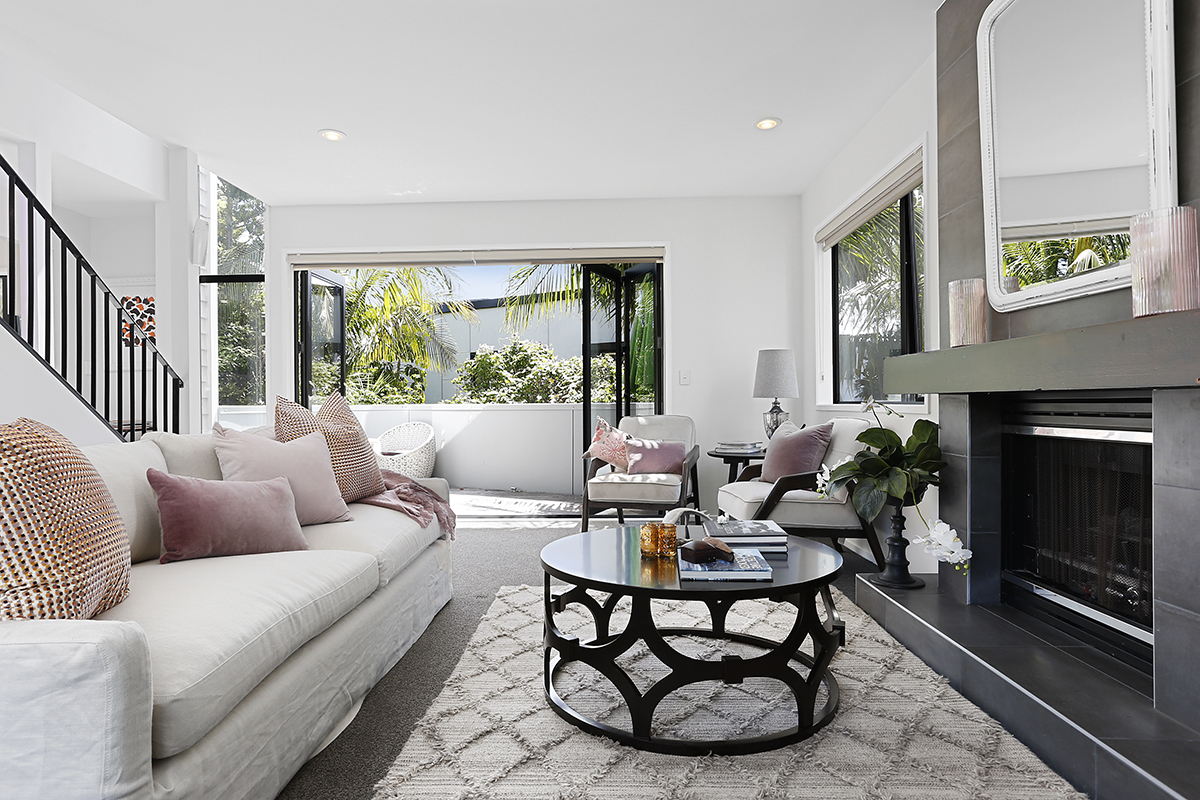Selling a Property

Posted on 10 MAY
Q: I’m looking at selling a property by auction. Last time I sold was over twenty years ago so it’s all a bit new to me. How long will it all take? Darryl H.
A: If you are in Auckland you will find that most agencies suggest a three week marketing campaign (three weekends of open homes) with the auction being held, usually, mid-week following the last open home. But before this they will need about a week and a half to organise professional photography, book press and gather the necessary property information (title, LIM, council property pack) – so allow up to five weeks from signing the listing agreement until you are sold. If you sell under the hammer you will normally receive a deposit of 10% of the sale price. This is held in the agency’s trust account for 10 working days before being released to your solicitor, less the agency’s fee (commission). The balance of the sale price is payable by the buyer at settlement, which can be anything from several days to several months or even a year or more, depending on what you have arranged prior to the auction.
Q: I am curious about auctions. Is it best to have them in rooms or on-site? And what exactly is a “vendor bid”? Danny S.
A: What a great, topical question – especially with all the talk in the media about how auction clearance rates have dropped in the past few weeks. Auctions are a very popular method of sale in Auckland and it surprises me how some agents fail to explain the process to their clients when it is so important to the sale. We almost always hold our auctions on-site. This helps in several ways: Firstly, it is all about your property – it’s not lost amongst another 20 or 30 properties. It also means that we can take as long as we need to take bids and negotiate. Did you know that can take over 40 minutes to add $100,000 to the price in bidding increments of $1,000? You don’t get that opportunity in an in-room auction where there can be a time-limit of less than 10 minutes per property. (It always amazes me that people are willing to spend just 10 minutes auctioning a property after spending so much time and money on open homes and marketing.) The extra time available with on-site auctions also gives us the opportunity to re-inforce potential buyer’s emotional attachment to the property. We open the property 30 minutes prior to the auction and have plenty of time to introduce the auctioneer and allow them to re-engage with the property as they walk around “their new home”.
A Vendor Bid is essentially a bid made by the auctioneer on behalf of the seller. It must always be announced as a Vendor Bid by the auctioneer and must always be under the reserve price. We firmly believe that vendors should be allowed to take advantage of their right to have the auctioneer to “vendor bid’ on their behalf. What it means is that the auctioneer can get auctions going and build some momentum when there is maybe just one buyer for the property. We have found that in recent times, with fewer buyers at auctions, a vendor bid is invaluable in getting the auction moving. This is borne out in our auction clearance rates: Our office clearance rates for auctions for the past 3 months is well over 85% (most, but not all, under the hammer). In terms of our own (The Stones) last 4 weeks of auctions - 5 properties – all sold under the hammer with the exception of one selling 24 hours later. All auctions are not created equal!
Q: My agent has told me that the best time to sell is in winter but I think my house looks better in spring – is he just trying to get me to sign up now or is it true? Jenny F.
A: There is no doubt that most houses look better in spring and summer, but unfortunately that means that most people decide to go to market then. The property market is like any other market – it’s all about supply and demand. So because demand is high (as it is now in Auckland – all our open homes are really busy) and supply is low (because so many sellers are waiting for spring/summer) it is a great time to be selling. Things will change in another few months, especially given the law changes coming up in October (more on that later), so my advice would be to go to market now and take advantage of the shortage of supply.
Q: Is it better to sell my house through an ‘exclusive’ listing where just one agent lists it, or should I engage several agencies? Seems to me that the more agents involved the more buyers I will get. Thanks, Jeremy W.
Good question Jeremy. In my opinion you should go with just the one agent. A good agent will ‘conjunct’ (i.e. share the commission with any other agent who brings a buyer along) so you will not miss out on any potential buyers. When a listing is shared by several agents/agencies (i.e. a ‘general listing’) you will find that they will all expend some effort for the first couple of days and then often forget about you and move on. When you list with one agent, and invest in some marketing, the agent knows you are serious about selling and will really try to get you sold. At the end of the day, if you show 100% support for your agent then they will show 100% support for you.
Q: I am looking at listing my house for sale. Can you give me some ideas on how we can get it ready for sale? I’m particularly interested in whether it’s worth staging the property. Raewyn L.
A: Good question Raewyn. We cover this comprehensively in our book “Sold” so I am sending you a copy, but in the meantime, here’s the short answer.
Firstly, we would highly recommend that you have your property staged (or ‘dressed’) if you’ve moved out and it’s vacant. This really is a no-brainer and you will get a return on your staging ‘investment’. If you are still living there and worried about your furniture being up to scratch there are companies that specialise in staging properties using existing furniture complemented by their own additional items (throws, rugs art etc). If you are happy with your furniture and your agent tells you it all looks fine then here are a few cost-free things you should do, at little or no cost: Nothing will scare off a potential buyer faster than a dirty home. Though some agents will recommend that you hire a cleaning service for a top-to-bottom deep clean, you can save money by taking care of this on your own, provided you’re willing to put in the time and elbow grease: You have to pack to move anyway, so you can get a jump start on it by gathering any and all personal decorative effects. This includes framed family photos on your walls or shelves, picture albums and all your personal knickknacks. Buyers like to envision themselves living in your house, and that’s much easier without things that remind them of you. Living a normal life requires a fair amount of stuff, but you’ll need to keep all signs of being a regular person hidden while your house is on the market. Once you’ve finished packing away your personal items, use your spare time to pack anything you don’t need on a daily basis. Clear shelves of books, pack away rarely used games and DVDs, and remove out-of-season clothing to make closets look more spacious.
If you live with young kids, have them choose their favourite toys to keep on hand, but only allow ones that can easily be stowed away under the bed or in a toy chest out of sight when your agent calls with a 15-minute warning for a surprise viewing. For adults, clear a bathroom and kitchen drawer that you can sweep counter clutter into in a pinch. If you’re willing to spend the time and put in the effort to stage your home, you can make your house appealing to prospective buyers without spending any money at all.
Q: I am thinking about selling privately but I’ve been told there are potential legal issues I should be aware of. Can you tell me what these are? Andy C
This is a question for a lawyer and Nick Birdsey, of Birdsey & Associates has kindly agreed to answer it.
A: There are many reefs under the waves in selling your property without professional help. The Agreement for Sale and Purchase has many obligations in the “fine print” and needs the correct clauses and conditions. These deal with potentially minefield vendor topics such as compliance or otherwise with local authority matters, for example, additions and alterations. Purchasers may want building reports and LIM reports, and all these clauses have to have the right wording. Timing too is important- tenancies have time limits which can trip you up. We have even had to point out that settlements do not happen on the weekend, banks need to be involved so that mortgages are discharged! When it comes to the Title, you should be aware that there can be still more fundamental title issues with properties such as cross leases (that apparently harmless carport can cause lots of headaches!) and Unit titles. These should be addressed before pen goes to paper on the Agreement or it may end in tears. In summary, the use of experienced professional agents and lawyers will give you real peace of mind.
Q: My husband and I are thinking hard about moving out of Auckland, with the hope of becoming mortgage free. This means selling our home in Remuera and moving to somewhere like Tauranga. I understand this is happening a lot – do you have any suggestions on where best to head and where we could get the best value? Jenny M
A: You certainly are not alone Jenny! With the median price in Auckland in December last year at $867,000 (according to REINZ) it’s no wonder people are looking to move out if they are not tied to the city for work or family reasons. In the past six months we have sold homes for people who have moved from Auckland to Mt Maunganui, Hawkes Bay, Queenstown, Keri Keri, Cambridge, Dunedin, and more. Two of our recent vendors have even moved to Queensland.
But let’s stay local for this. As you will have read, many of the regions have had very strong increases in value, while some have stayed quite stable. REINZ statistics show that Queenstown has had a huge increase from December 2014 to December 2015: 54%! The median price went from $490,000 to $752,000. If you want somewhere cheaper (and warmer?) you could try Keri Keri. The median price there moved from $400,000 in December 2014 to $515,000 in December 2015 (29%). Although Tauranga and Mt Maunganui have been hitting the headlines more than most other areas they aren’t so bad. The December 2015 median price in the Mount/Papamoa was $560,000 up by 24% from the previous December, while Tauranga was up by 16% to $470,000. Further away, and far less expensive is Gisborne: The median in December ’15 was just $238,500, down from $255,000 the previous year. Napier also seems like good value at $345,000, especially being close to the vineyards!
Of course all we have compared here are median prices, we haven’t taken into account whether you could find work, you like the area or can find the perfect house for you.
What the numbers do tell us though is that you could potentially pay off your mortgage, or certainly reduce it significantly by moving out of the Auckland region. Hope that is of help Jenny, and good luck with your search.
Q: I’m looking at selling next year and wondered if you have any advice on how to choose the best agent to sell my home? Steve H.
A: What a great question – especially to ask a real estate agent! We cover this off pretty thoroughly in our book ‘SOLD, How to Sell Your Home for the Best Price’, so I’m sending you a copy. For everyone else reading this here is a bit of a summary. This is Part One – Part Two will follow next week.
Before you choose your agent think about what is most important to you: the best price, the simplest transaction, the shortest sale time, the least stress, or probably a combination of some of these.
The next step is to interview at least two agents, preferably from different agencies, to see how they will meet your requirements in terms of what is most important to you.
Most people are most concerned about getting the very best price and many focus too much on costs (commission and marketing) instead of getting the best sale price. A really good agent will more than make up the difference of a few thousand dollars in fees when they sell your house for tens of thousands of dollars more than the ‘cheaper’ agent, and a good agent will be very reluctant to discount. The same goes for marketing. The question of ‘costs’ should be the least important on your list, and here it is:
What is your listing to selling ratio? (I.e how many properties that you take to auction do you sell?)
What is your marketing plan? How will you make my home stand out from all the others on the market?
How many potential buyers do you have on your database?
How do you use technology to reach potential buyers?
How will you keep in touch during the sales process?
What sets you apart from other agents?
What is also pertinent in today’s market is: What is your auction strategy if you have only one buyer? And do you use vendor bids?
Next week I will run through some of the answers you should expect, whether or not you have to really like the agent you engage and lastly, what is important in an agent from an insider’s point of view.
- We are thinking of selling our home of 40 plus years. We’ve never sold a property before and are a little concerned about the whole process, especially from a stress point of view. Can you offer any advice?
Some people get emotionally attached to their cars and have a hard time selling them. To get an idea of what it will be like to sell your home, magnify that reaction by about 100 times!
The first thing to do is to understand that it will be stressful and be prepared for that.
Next talk to a few real estate agents: I’ve covered what to ask them in previous articles, but for you the main thing is to find someone capable (check out their testimonials and success rates – especially for auctions) and who you feel you can really relate to. Then listen carefully to their suggestions. And don’t let them push you: Wait until you’re ready.
Maybe you have no choice but to sell — which can be even more difficult emotionally. Get as much support as you can from friends and family. Be honest with your real estate agent about how difficult this is for you. The more information you give the agent, the more they can work around any potential problems.
When you are emotionally attached to your home, it’s difficult to see it as a product. But that’s what it is — something you have to sell and that, with luck, others will want to buy. You can also get in your own way of succeeding.
Often, a seller who isn’t emotionally ready to sell will insist on wanting more than the market will bear. This is why it’s imperative that sellers should be emotionally ready to sell; when they aren’t, they can subconsciously sabotage the process. We’ve seen many instances where a home has been on and off the market for over a year with multiple real estate agents and approaches to selling it. What started off as an overpriced home ended up selling for a bargain to a buyer who capitalized on the seller’s mistake.
So the message is: Choose a good agent who you trust to help you, and listen to their price feedback.
Q: I am thinking of selling my 1970’s-built home in Glen Innes. There are a number of new houses being built close by and I’m wondering whether I should wait for them to be finished or just get on with it now? Pauline J
A: Interesting question. The market is good at the moment, and I think it will stay that way in the medium term, albeit with maybe a few little ups and downs. The great thing about having new-builds in your neighbourhood is that it will increase the median value of homes around you, including yours, even while they are in the process of being built. So it’s probably not a bad time to be selling right now. Of course once they go on the market it is a great time for you to be selling – new homes will attract more buyers to the area, and of course to your property if you are on the market at the same time. A smart real estate agent will time your open homes so that you get the overflow from the other open homes – most open home visitors will look at another open home across the road if it’s open at the same time. In general terms more people through the open homes equals more bidders at auction equals a higher price! Good Luck!
Q: We are looking at selling our home of 12 years on the North Shore, and are talking to a couple of estate agents re how to sell. We are originally from the United Kingdom and have only bought the one home here and have no experience of selling here. Both agents have said we should hold open homes, but we are really not sure. Catherine G.
A: There are pros and cons to open homes Catherine, but in our opinion the pros win, and not just for sellers, but for buyers too. Firstly, open homes, like auctions, are an accepted, and often expected, way of marketing your home. Most buyers these days like to schedule their weekend afternoons going through a list of prospective homes, and what better way than to go from open home to open home? If they don’t like it they can turn around and walk out without feeling under obligation to the agent. If they do like it they can arrange to view again at whatever time suits you. And of course potential buyers can ask to view outside of open homes if they can’t make the time on the weekend.
The real benefit to you as a seller is that you have scheduled viewings on a Saturday and a Sunday, rather than ad hoc viewings every day of the week. You can go out shopping or for a coffee and know that 30 or 45 minutes later your home will be free for the rest of the day. Of course there will always be those buyers who want to come back on their own, or with other family members, and serious buyers may well want to organise a building inspection outside of the open home.
Open homes also gives you and the agent to show that your home is popular: A busy open home sends a message to all the buyers that the property is popular, which in turn makes it more desirable to viewers.
As long as you select a good agent, who has produced a good marketing plan, you will get plenty of people through your open homes, which in turn will ensure you get the most number of people at the auction and the best possible price.
Good luck with your sale!
Q: Now that our children have all grown up and left home we want to downsize from our current property in Parnell to a smaller property. We are worried though that if we sell we won’t be able to find anything we like. What options do we have? Margaret B.
A: This is a very common question these days Margaret, especially with the shortage of houses on the market in Auckland right now.
Obviously you have two choices: Sell first then buy, or buy first then sell. If you buy before you sell you won’t really know what your budget is (you can’t be sure how much your home will sell for) and you may very well need bridging finance to get you through the period between when you have to pay for your new home and when you settle on (and get paid for) your current home. (The length of settlement is the time between unconditional date, often the auction date, and the day the new owner pays and takes possession). You can minimise this by asking for a long settlement on your new home, and then be ready to go straight to auction on your current home as soon as you have an unconditional agreement on your new home. This may enable you to get sold and settled before you settle on the new home, but what if your purchaser wants a long settlement too? Either way you do run the risk of being forced to get bridging finance. In the very worst scenario you may have trouble selling your home and end up owning TWO properties – not always ideal!
Alternatively you can do what most people seem to be doing these days: Sell first and then buy. Of course as you’ve said, the risk here is that you can’t find anything to buy once you’ve sold. However, what we have found is that people who have sold get very focussed very quickly on finding their new home, and they become a lot less fussy! And if it takes longer than you expect there is always the option of renting while you search.




